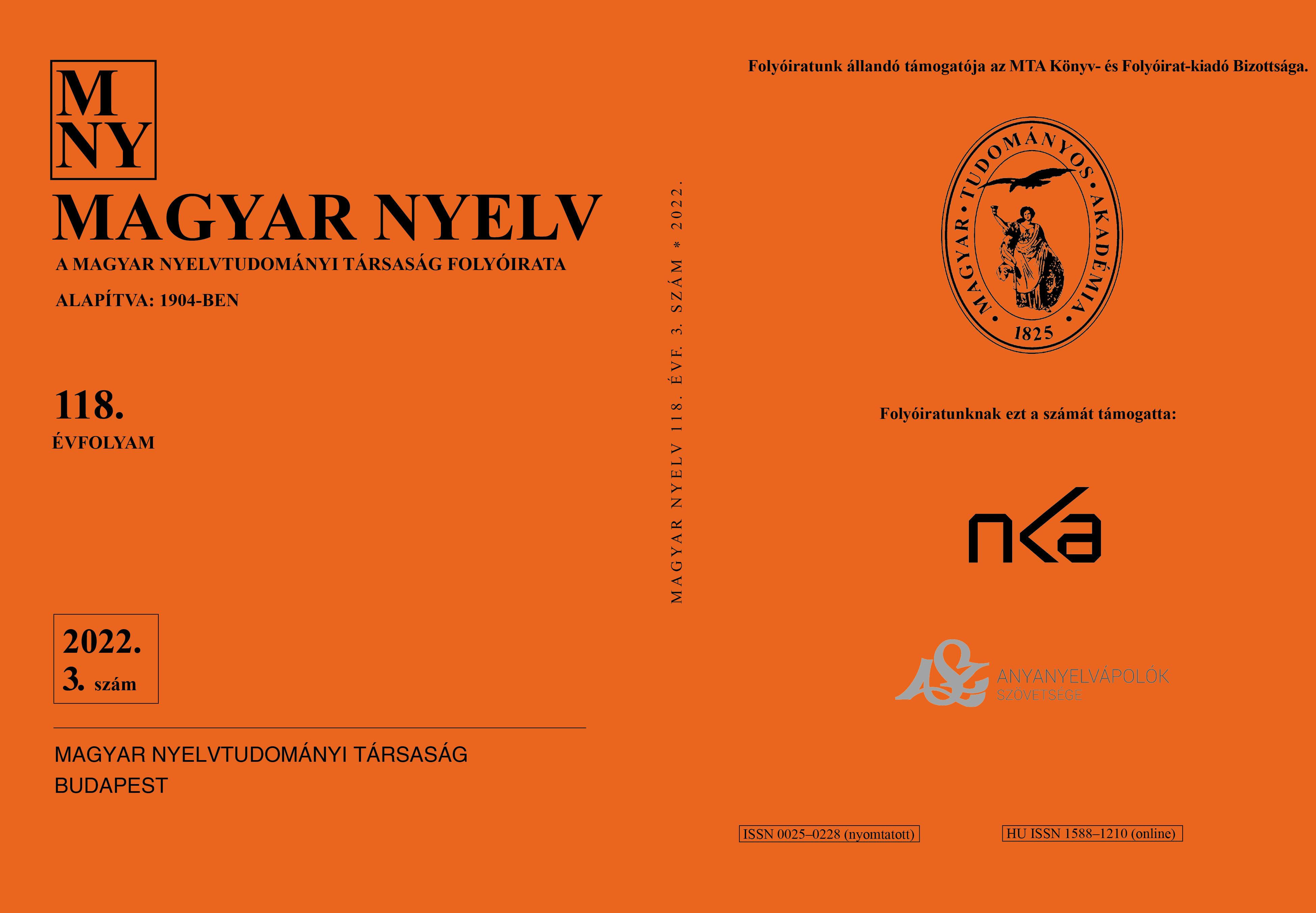T/V pronouns in global communication practices: A case study of IKEA catalogues across linguacultures
Part 1
DOI:
https://doi.org/10.18349/MagyarNyelv.2022.3.328Keywords:
personal pronouns, translation, contrastive pragmatics, IKEA, globalisationAbstract
In this paper we investigate how the second person pronominal T-form is translated in IKEA catalogues in a number of different languages. IKEA is renowned for using the T-form as a form of branding: it promotes this form even in those countries where it might not be perceived favourably. However, our examination of a sample of IKEA catalogues shows that there are frequent deviations from IKEA’s T-policy. By examining translations of the T-form in IKEA catalogues, and language users’ evaluations of the (in)appropriacy of these translations, we aim to integrate T/V pronominal research into the pragmatics of translation, by demonstrating that the study of the translation of seemingly ‘simple’ expressions, such as second person pronominal forms, can provide insight into an array of cross-cultural pragmatic differences. The study of translation in global communication is also relevant for research on the pragmatics of globalisation.
Downloads
Published
Issue
Section
License
Copyright (c) 2022 Juliane House, Dániel Zoltán Kádár, Ákos Bertalan Apatóczky

This work is licensed under a Creative Commons Attribution-NonCommercial-NoDerivatives 4.0 International License.
Magyar Nyelv is a Diamond Open Access periodical. Documents can be freely downloaded and duplicated in an electronic format, and can be used unchanged and with due reference to the original source. Such use must not serve commercial purposes. In the case of any form of dissemination and use, Hungarian Copyright Act LXXVI/1999 and related laws are to be observed. The electronic version of the journal is subject to the regulations of CC BY-NC-ND (Creative Commons – Attribution-NonCommercial-NoDerivatives).
The journal permits its authors, at no cost and without any temporal limitation, to make pre-print copies of their manuscripts publicly available via email or in their own homepage or that of their institution, or in either closed or free-for-all repositories of their institutions/universities, or other non-profit websites, in the form accepted by the journal editor for publication and even containing amendments on the basis of reviewers’ comments. When the authors publicize their papers in this manner, they have to warn their readers that the manuscript at hand is not the final published version of the work. Once the paper has been published in a printed or online form, the authors are allowed (and advised) to use that (post-print) version for the above purposes. In that case, they have to indicate the exact location and other data of the journal publication. The authors retain the copyright of their papers; however, in the case of an occasional secondary publication, the bibliographical data of the first publication have to be included.



